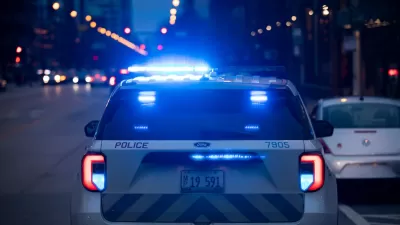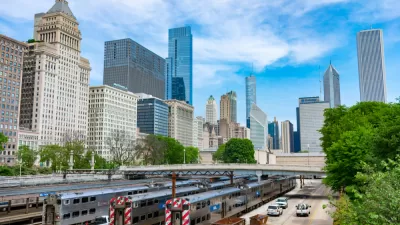After two pilots, Chicago has permanently legalized e-scooters in the city, but the equity provisions remain to be worked out.

After two pilot programs and a series of public testimonies, e-scooters are returning to Chicago permanently.
The City Council Transportation Committee passed an ordinance on October 13 that would allow three companies to deploy about 12,500 scooters citywide starting next year, making e-scooters an integral part of the city’s transportation system. (Bird, Lime and Spin, as participants in the last city pilot, are likely the three companies, but they will have to re-apply.)
The e-scooter program showed some early success during both pilots. In the 2020 pilot, running at a much bigger scale than in 2019, an average of more than 4,000 trips were taken daily. More than 80% of the riders surveyed believed that scooters should be part of the city’s transportation future. E-scooter-related calls to 311, including complaints about sidewalk riding or devices being locked to private property, dropped by 75% compared to the 2019 pilot. Most injuries reported were minor and usually to scooter users themselves rather than to pedestrians.
Olatunji Oboi Reed, president and CEO of mobility justice advocacy group Equiticity, is excited to see the new transit alternative coming to his neighborhood. Born and raised on the south side of Chicago, Reed has seen firsthand how transportation inequities adversely impact majority Black and brown communities. Those communities have the fewest transportation choices, the longest commutes, the highest concentration of industrial centers and truck traffic. “We don’t have the luxury of picking and choosing which mode of travel we want available in our neighborhoods,” says Reed. “The severity of the inequities is too vast [so] we must have every single mode of travel delivered to our doorstep.”
FULL STORY: Chicago’s E-Scooter Program Is Now Permanent. But Will It Be Equitable?

Maui's Vacation Rental Debate Turns Ugly
Verbal attacks, misinformation campaigns and fistfights plague a high-stakes debate to convert thousands of vacation rentals into long-term housing.

Planetizen Federal Action Tracker
A weekly monitor of how Trump’s orders and actions are impacting planners and planning in America.

In Urban Planning, AI Prompting Could be the New Design Thinking
Creativity has long been key to great urban design. What if we see AI as our new creative partner?

Car Designs Make it Harder to See Pedestrians
Blind spots created by thicker pillars built to withstand rollover crashes are creating dangerous conditions for people outside vehicles.

Cal Fire Chatbot Fails to Answer Basic Questions
An AI chatbot designed to provide information about wildfires can’t answer questions about evacuation orders, among other problems.

What Happens if Trump Kills Section 8?
The Trump admin aims to slash federal rental aid by nearly half and shift distribution to states. Experts warn this could spike homelessness and destabilize communities nationwide.
Urban Design for Planners 1: Software Tools
This six-course series explores essential urban design concepts using open source software and equips planners with the tools they need to participate fully in the urban design process.
Planning for Universal Design
Learn the tools for implementing Universal Design in planning regulations.
Appalachian Highlands Housing Partners
Gallatin County Department of Planning & Community Development
Heyer Gruel & Associates PA
Mpact (founded as Rail~Volution)
City of Camden Redevelopment Agency
City of Astoria
City of Portland
City of Laramie





























